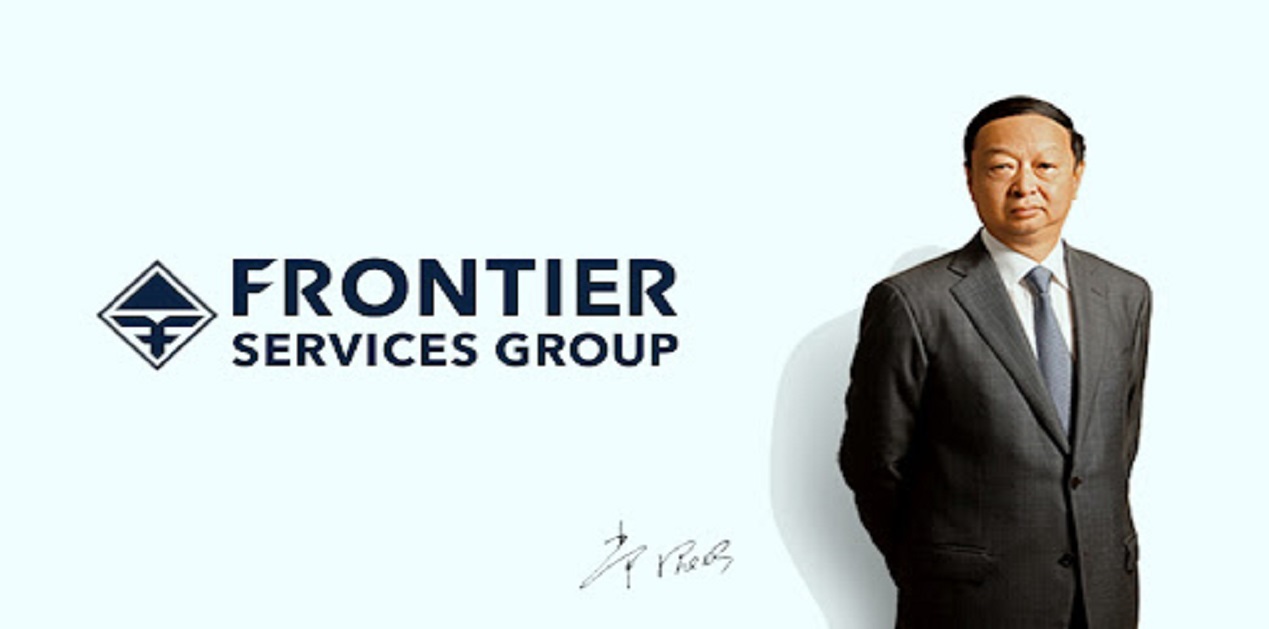Despite the current international tensions and the narrative of multipolarity, there is still a vanity that power dispersion in the international order will happen between nation states. Even though threats from non-state actors have received a fair degree of attention, the fact that states have become comfortable with private entities capable of impinging on their monopoly on violence has been conveniently ignored. Whether it is explained as a supply-demand problem of budgets to operational requirements or the herald of a new medievalism, the rise of Private Military Contractors (PMCs) is changing warfare, and therefore the conduct of international relations. Though, profit motive stirs up comparisons with mercenaries, PMCs are distinguishable by their corporate structure which requires registration in some origin state and working on legally recognizable contracts. Thus, PMCs are constrained in their role as international businesses to engage in only legitimate business actions, at least if they wish to remain legally recognized corporations. There have been reports that one of Japan’s yakuza gangs was planning to adopt the PMC business model, providing bodyguards and security personnel for businesses in Southeast Asia in a bid to go legit1.
While the legal outlay involving mercenaries draws hostile sentiments from both UN and national governments, PMCs as a whole face very little regulation in the international sphere. In fact, following the failure of UN peacekeeping operations (UNPKOs) in Somalia and Rwanda in the 1990s, and the relative success of Executive Outcomes in stabilizing Angola and Sierra Leon, the idea of using PMCs in UNPKOs actually gained traction at the time2. The UN Mercenary Convention or the International Convention against the Recruitment, Use, Financing and Training of Mercenaries has been ratified by only 35 states and many are overlapping signatories to the Montreux Document. The Montreux Document is an agreement between signature countries on obligations regarding private military and security companies in war zones (aka defining good practices for PMCs). It has 54 state signatories that include big powers such as the US, UK, Canada, China, France, Australia etc. India is a signatory to neither. The rapid growth of the loosely regulated PMCs has created severe security deficiencies from Libya to Mexico. It would not be an exaggeration to say arms beget more arms. With over 16,000 private military and security companies in operation that employ over two million people, Latin American security companies actually hire more citizens than the police3.
The United States essentially birthed the modern military contracting industry for its Global War on Terror. President Clinton’s radical downsizing of the US military (active troops numbered 2.1 million in 1990, 1.8 million in 1993, and 1.4 million by decade’s end) while focussing on military modernization inadvertently generated the labour pool for this industry4. The smaller force facing a slew of wars (Afghanistan, Iraq etc.) in the next decade had no option but to contract out military services to meet the burgeoning operational demands. With extant deep connections into several branches of the US government, General Harry E. Soyster who served as VP for Military Professional Resources Inc. (MPRI) once famously remarked “We’ve got more generals per square foot here than in the Pentagon5”. Unsurprisingly, the PMC industry has thus, mirrored the monopsony buyer's own army. PMC leadership, culture and operational concepts are all derivative of the US military which is very appealing to many clients. Now as the US withdraws from conflict zones and its large security contracts conclude, many earlier firms (including third country citizens and local hires) have sought to spin off and seek new clients in the international marketplace as full-fledged PMCs.
PMCs can be categorized into largely- Military Provider Firms, Military Consulting Firms and Military Support Firms. “Military Provider Firms” are defined by their focus on the tactical environment. In a military sense, such firms (best e.g., Executive Outcomes) provide services at the forefront of the battle-space by engaging in actual fighting either as line units or specialists and/or direct command and control of field units. “Military Consulting Firms” provide advisory and training services integral to the operation and restructuring of a client’s armed forces. These firms (best e.g., Frontier Services Group) offer strategic, operational, and/or organizational analysis. They have engagement with the client at all levels, except at what businessmen would describe as ‘customer contact’. That is, they do not operate on the battlefield itself. “Military Support Firms” offer supplementary military services that comprise nonlethal aid and assistance including logistics, intelligence, technical support, supply, and transportation. These firms (best e.g., DynCorp) specialize in secondary tasks not part of the overall core mission of the client. Thus, client’s own military, in turn, can concentrate on its primary business of fighting6. Most PMCs today make money not by deploying their own armies, but by making them for someone else.
Requisitioning a private army is a big market involving many state buyers. Military contractors reduce the risk of praetorianism as bought loyalties may prove more reliable than public loyalties in the case of internal conflict and civil war as in the case of President Erdogan and SADAT International Defense Consultancy Inc. in Turkey. Another example is the now defunct Reflex Responses that was assembled at the behest of the UAE authorities for expanding their presence in the numerous civil wars in the region. While most would assume the challenging part of providing security is acquiring the requisite hardware, it is in fact the skills and training expertise that are significantly hard to come by. Tian Buchou, a veteran of Chinese special forces and having 17 years of private security experience in the Middle East and Africa, noted that in terms of training and expertise Chinese PMCs are far behind their Western counterparts. Chinese security contractors see the job as essentially gate-keeping where western counterparts come prepared with a comprehensive operational system covering logistics, weapons, relationship with local militias, language skills and even medical support7.
But, by logical correlation, if one has the ability to raise an army, then one also has the aptitude to deploy it, since the skill sets are closely related. The leakage of Mexican Special Forces into organized crime began in the 1990s when the powerful Gulf cartel recruited a group of ex-Gafe troops to create its own paramilitary enforcement unit, known as Los Zetas. They eventually turned on their masters, establishing the Zetas as a cartel in their own right8.In this regard; the passive Chinese PMCs need to be carefully observed. Beijing’s ambitious strategy to reshape the global order via the Belt and Road Initiative has resulted in an enormous expansion of the security needs of its ever growing infrastructural and economic networks over land and sea. Currently, Chinese PMCs’ personnel are prohibited by Chinese law from carrying weapons overseas, with the exception of maritime security services. Huang Rihan, executive director of the Belt and Road Institute at the Centre for China and Globalisation, mentioned that just six of China’s 5,000-plus private security companies are certified to operate overseas with majority focussed on escorting Chinese commercial ships in the open seas9.
For India, understanding the implications of the rise of the private military contractors and their role in international conflicts is crucial to forecasting and scenario planning. Further, as Pakistan and China bear tremendous significance for India's national security, the evolving private military and security companies in these two countries need to be carefully watched. Journalist Antony Loewenstein wrote in an Australian publication in April 2012 that in Pakistan “private security is a state within a state”. He wrote that a total of 62 retired military officials were running these private companies and at least half of them “had been arrested and then released for corruption and working for the Americans”10. In the case of China, the spate of tragic incidents involving Chinese nationals in recent time such as along the China-Pakistan Economic Corridor has led PRC authorities to limit reliance on local security forces or other multinational firms. Frontier Services Group (FSG) founded by Erik Prince and a listed security firm in Hong Kong that counts Chinese state-owned conglomerate Citic Group as its majority shareholder operates to provide security to BRI projects. Huaxin Zhongan Security Services and DeWe Security Services are other prominent Chinese PMCs that operate internationally.
There is a strong dogma regarding conventional war that conflicts without states are not considered war. Yet there are wars without states and wars in which states exist in name. In fact, the state is many a times the prize to be taken in the narco wars. Yet, it is not the crumbling regimes but the big powers that are the biggest clients in this current privatization of war. The dispersion of state monopoly on force and violence brought about by the rise of the PMCs brings both efficiencies and impotence for the rule of law and order within states and among states. Whether PMCs will be used to fight Boko Haram terrorists in Nigeria or man torturous prisons like Abu Ghraib, the end accountability will rest with states.
- SCMP: Yakuza aim for ‘private army’ business model in bid to go legit, 27 June 2017, https://www.scmp.com/news/asia/east-asia/article/2100092/yazuka-aim-private-army-business-model-bid-go-legit
- Should Private Military Companies be used in UN Peace Operations?, Nov 17, 2015, https://www.e-ir.info/2015/11/17/should-private-military-companies-be-used-in-un-peace-operations/
- OCCRP: Private Security Companies Go Unchecked in Latin America, 28 March 2021, https://www.occrp.org/en/daily/7837-private-security-companies-go-unchecked-in-latin-america
- Foreign Affairs: Clinton's Strong Defense Legacy, Nov/ Dec 20003, https://www.foreignaffairs.com/articles/2003-11-01/clintons-strong-defense-legacy
- P. W. Singer. Corporate Warriors; The Rise of the Privatized Military Industry. Kindle Edition.
- No. 3, Ibid
- SCMP: Why a private US military firm is of value to China’s belt and road mission, 15 July 2018, https://www.scmp.com/news/china/diplomacy-defence/article/2155353/danger-zone-why-private-us-military-firm-value-chinas
- The Guardian: 'The training stays with you': the elite Mexican soldiers recruited by cartels, 10 Feb 2018, https://www.theguardian.com/world/2018/feb/10/mexico-drug-cartels-soldiers-military
- No. 5, Ibid
- Dawn: US report highlights murky world of ‘contractors’ in Pakistan, Dec 8, 2018, https://www.dawn.com/news/1450162
(The paper is the author’s individual scholastic articulation. The author certifies that the article/paper is original in content, unpublished and it has not been submitted for publication/web upload elsewhere, and that the facts and figures quoted are duly referenced, as needed, and are believed to be correct). (The paper does not necessarily represent the organisational stance... More >>
Image Source: https://lh3.googleusercontent.com/proxy/TAJl3E0-M6HkZpo2Se3OYBgy-laSFdf6PMJKIkUCbH88zLFMrH7KkPgAoadXbAmxK59kd_FZ3ruWdC8UVhqamayZwM_LGXOAo7Vl9NqCB4bUN841qKs











Post new comment